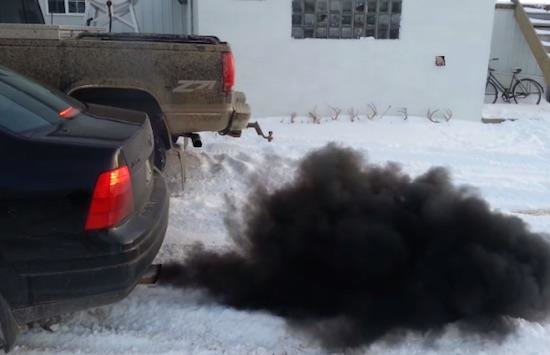PD Engines and Smoke

VAG PD Engines and Smoke: Why Do So Many Tunes Result in Thick Black Smoke?
The Volkswagen Audi Group (VAG) Pumpe Düse (PD) diesel engines were some of the most robust and powerful diesel engines of their time. However, one of the most common issues with tuned PD engines is excessive black smoke.
Why Do Tuned VAG PD Engines Produce Black Smoke?
1. Aggressive Fueling Without Sufficient Air
PD injectors can deliver a substantial amount of fuel in a very short time window. Many aftermarket tunes increase fuel delivery beyond what the stock turbo and intake system can efficiently combust, leading to thick black smoke.
2. Stock Turbo Limitations
Many PD engines use relatively small VNT turbos that cannot provide enough boost to burn all the fuel efficiently, leading to soot formation.
3. EGR and DPF Removal
Removing Exhaust Gas Recirculation (EGR) and Diesel Particulate Filters (DPF) increases reliability but also contributes to excessive black smoke.
4. Cheap Cloned Tuning Equipment Leading to Bad Remaps
PD engines are "easy" to tune because cloning and flashing tools are cheap. This has resulted in many poorly calibrated remaps that cause excessive black smoke that a train would be proud of.
Smoke and High Exhaust Gas Temperatures (EGTs): Why It’s Bad
Black smoke indicates incomplete combustion, leading to excessively high Exhaust Gas Temperatures (EGTs), which can cause:
- Cracked Cylinder Heads – Excessive thermal stress can crack the cylinder head.
- Damaged Turbos – High heat and unburnt fuel cause turbo failure.
- Piston and Ring Wear – High combustion temperatures accelerate engine wear.
- Melted Exhaust Components – Extreme heat can damage downpipes and manifolds.
Advantages of the PD Engine
- High Injection Pressures – Efficient combustion when properly tuned.
- Durability – Strong internals handle significant power increases.
- Excellent Tuning Potential – With proper calibration, PD engines can be reliable and powerful.
Disadvantages of the PD Engine
- Rough Idle – Noisier compared to Common Rail engines.
- Expensive Injector Repairs – Integrated injectors are costly to replace.
- Limited Turbo Capability – Stock turbos struggle with higher fueling demands.
- High Emissions Without Proper Tuning – Excessive smoke can fail emissions tests.
How to Reduce Smoke in a Tuned PD Engine
- Proper ECU Calibration – Balance fueling and boost for efficient combustion.
- Turbo Upgrade – A larger turbo can support increased fueling.
- Injector Health – Worn injectors contribute to overfueling.
- Upgraded Intercooler – Helps reduce intake air temperatures.
- Optimized Exhaust System – Reducing backpressure improves efficiency.
VAG PD engines have great tuning potential, but improper tuning results in excessive black smoke, high EGTs, and possible engine damage. A well-calibrated tune with proper supporting modifications can unlock the PD engine’s full potential while keeping smoke levels under control.

KLAUS NIELSEN
22.5K Followers
At the bleeding edge of tuning and ICE development
Motorsports & Fast Road Tuning Specialist
Software Skills: Reverse Engineering - Assembler(IDA Pro - OllyDbg - WinDbg etc)
C/C++ - Pascal - Java - C#/VB.Net - Python - Perl
Experience on PowerPC, x86/64, Motorola, Infineon TriCore etc

